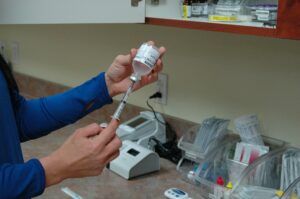Prostate cancer is the most commonly diagnosed cancer in men with millions of new cases every year. European scientists have developed a novel vaccine to prevent disease metastasis, the main cause of mortality amongst advanced prostate cancer sufferers.
The majority of prostate cancer patients are diagnosed at the localised, pre-metastatic stage of the disease. They have to undergo primary tumour excision by surgery or radiotherapy followed by active monitoring to ensure cancer relapse doesn’t occur. Despite the frequent incidence of metastasis formation, there is currently no treatment available post-surgery to directly limit micro-metastasis formation.
Available treatments exhibit serious side effects, mainly focus on later stages of cancer progression and almost always develop resistance. There is an urgent need for therapeutic strategies that act early on in prostate cancer before cancer returns and cancer cells start to spread, making the treatment far more difficult and expensive.
Clinical impact
So far, the vaccine has been tested in prostate cancer patients after removal of the primary tumour and before metastasis formation to address the challenge posed by the high incidence of metastasis following primary tumour excision. Results from the phase I/II clinical trial, which involved 22 patients after prostatectomy, demonstrated the excellent tolerability and safety of RV001. Importantly, the majority (86 %) of patients showed a significantly positive immune response.
As Dr Borghei outlines: “the next step is to validate the efficacy of the drug in a Phase IIb clinical trial in a larger number of patients.″ Nonetheless, she emphasises the need for partnerships and capital investment to secure successful commercialisation of the vaccine.
RV001 has the potential to be administered to more than 150 000 patients in Europe and US alone, helping them at an early stage to reduce prostate cancer burden. This will bring in an estimated revenue of EUR 1 billion by 2030.
RV001 holds important competitive advantages such as targeting a stage of the disease where there is currently no treatment available coupled with high safety and cost-effectiveness. At the same time, scientists are confident it will work against multiple types of metastatic cancer.







Leave a Reply